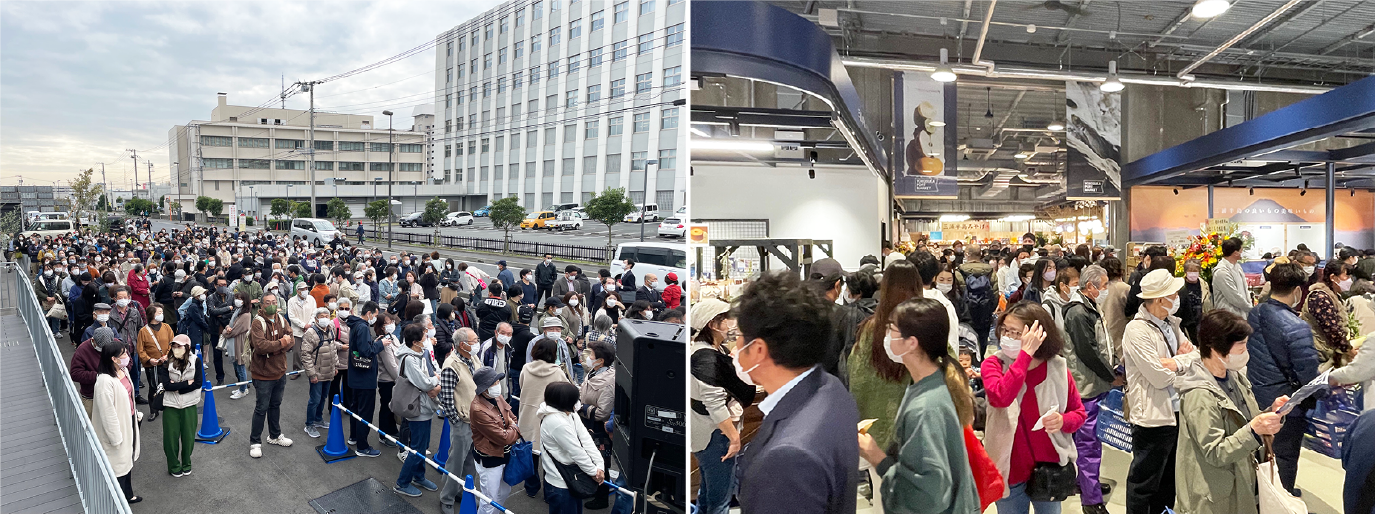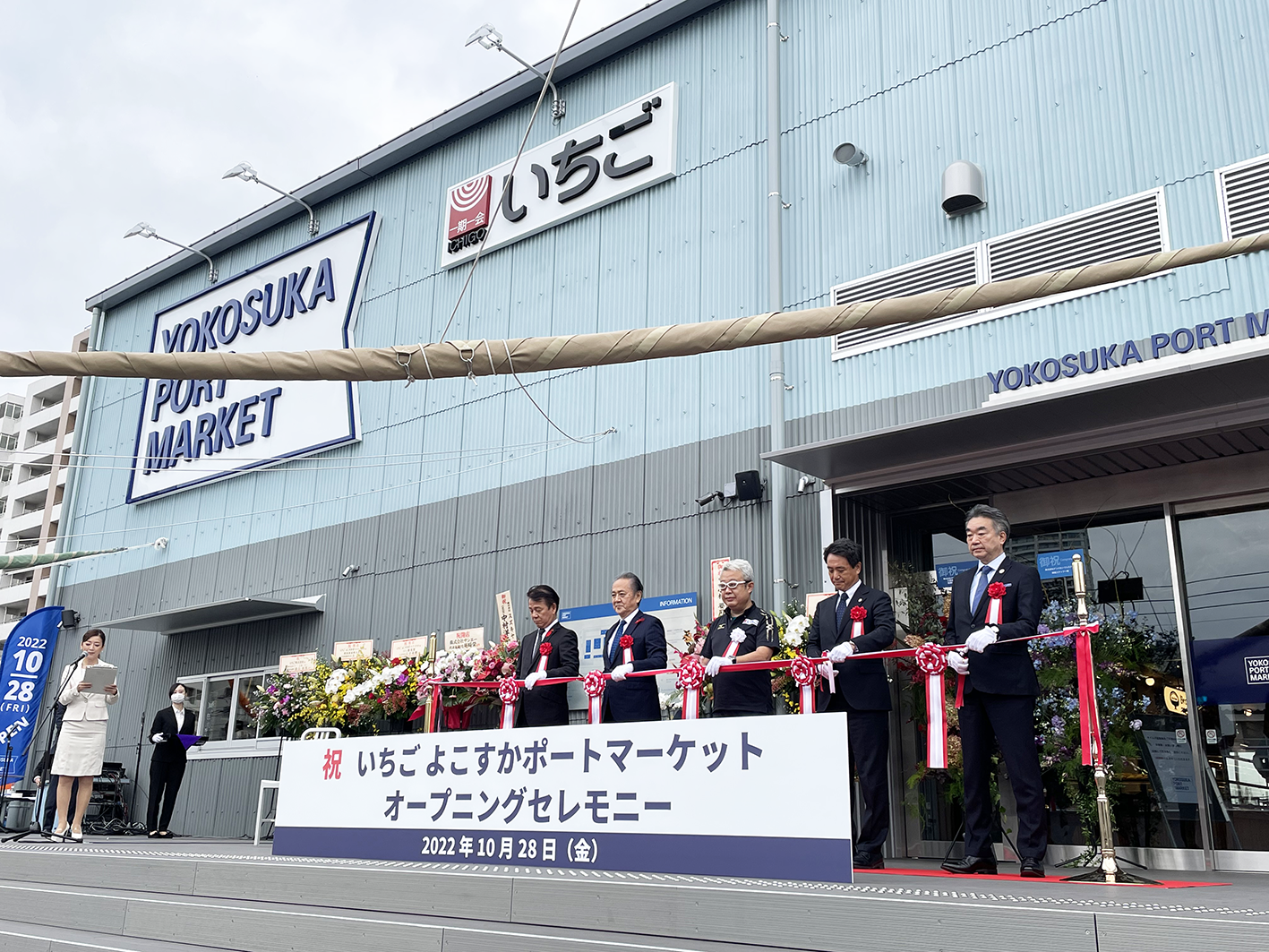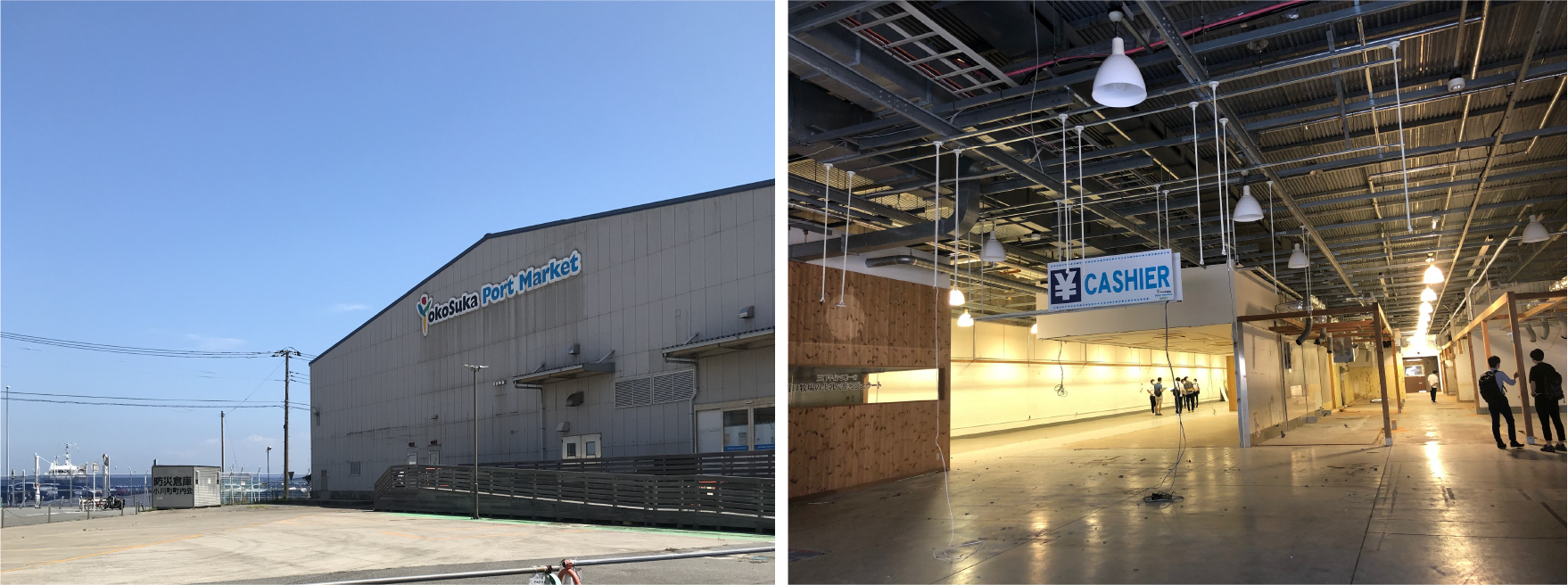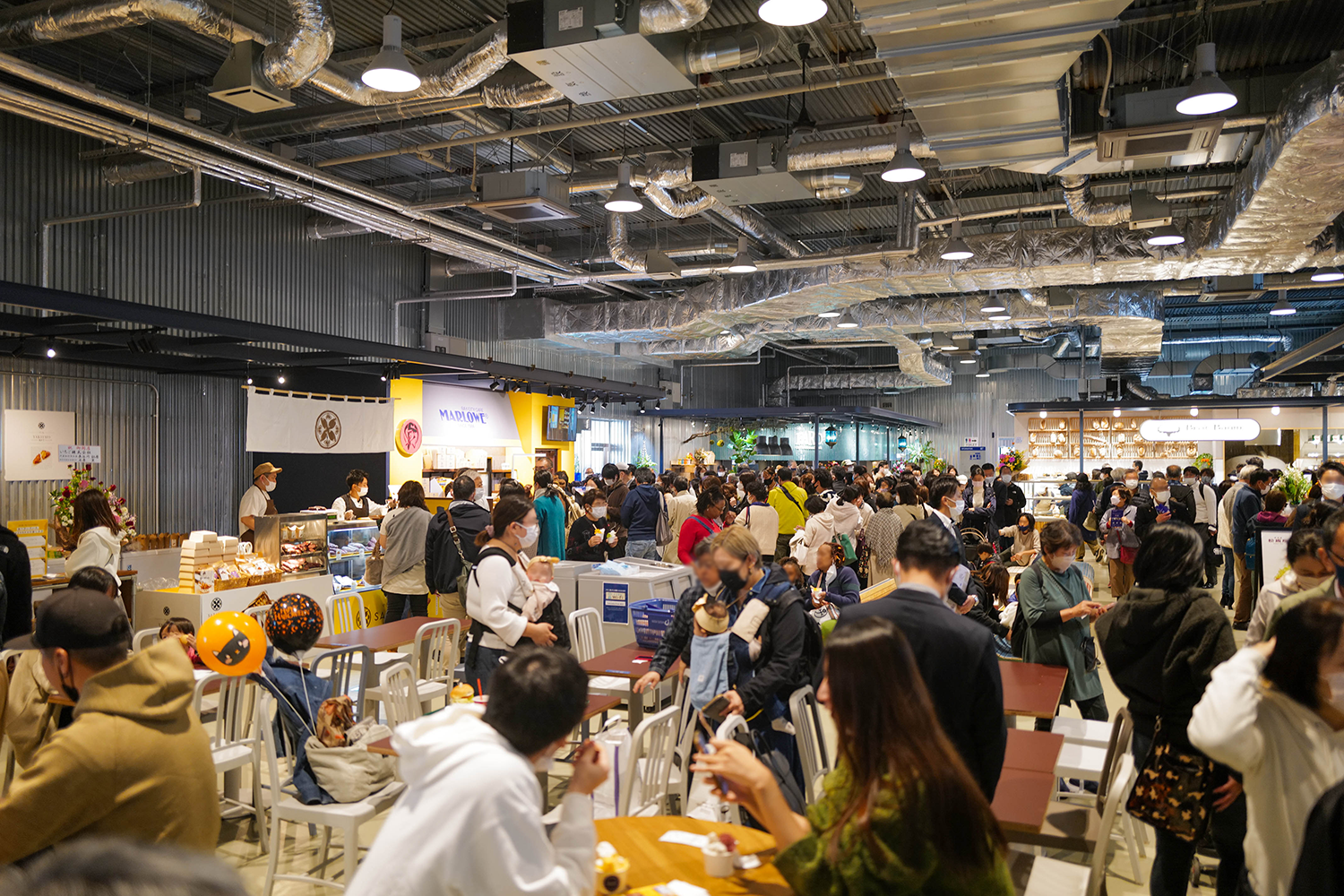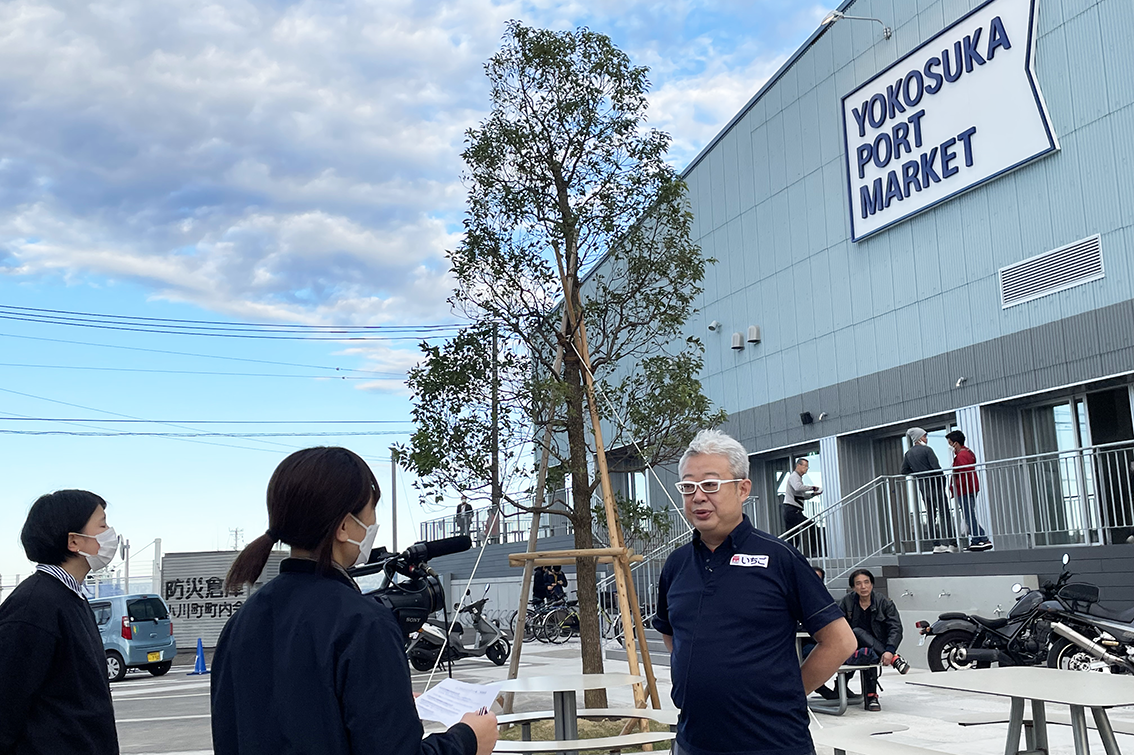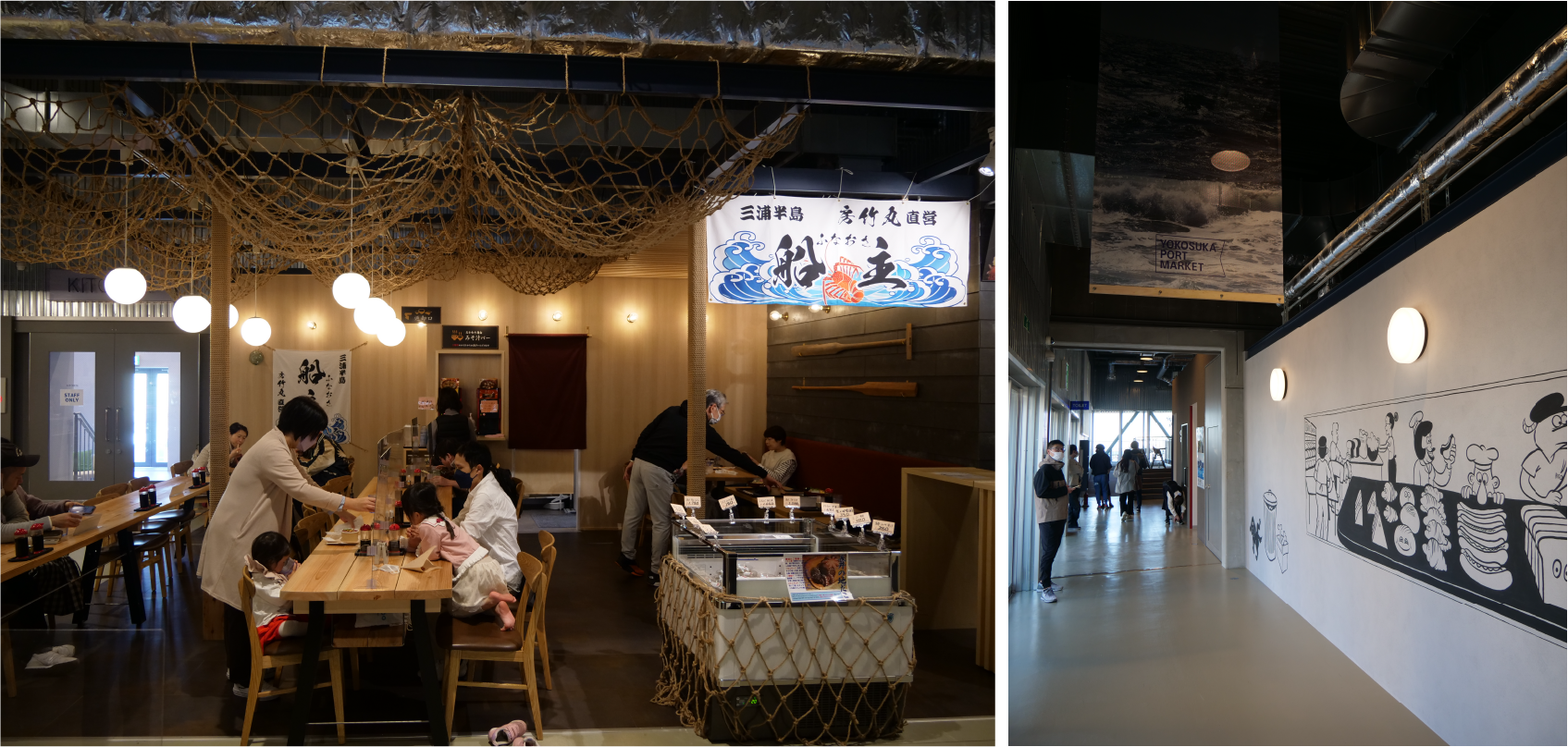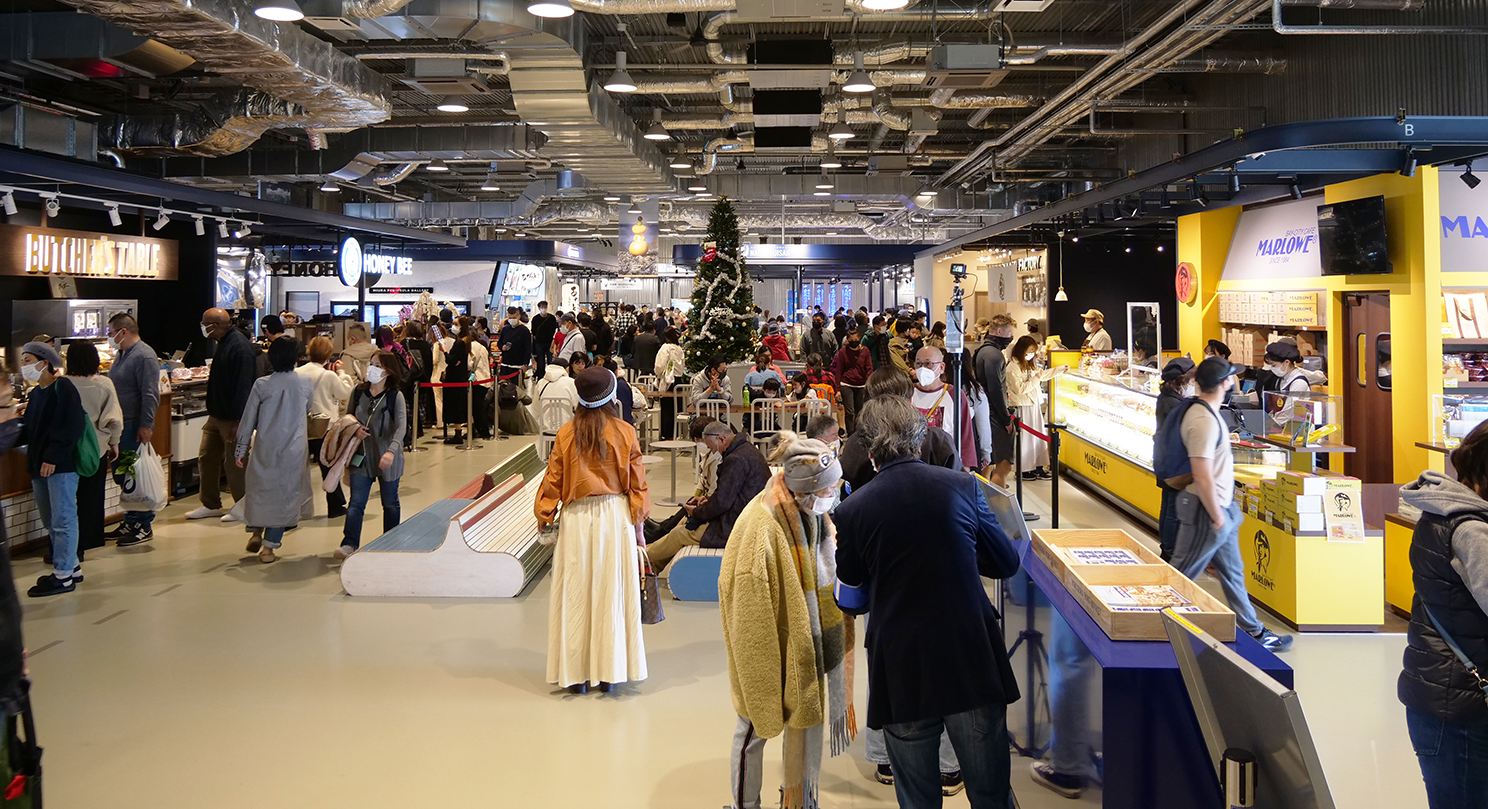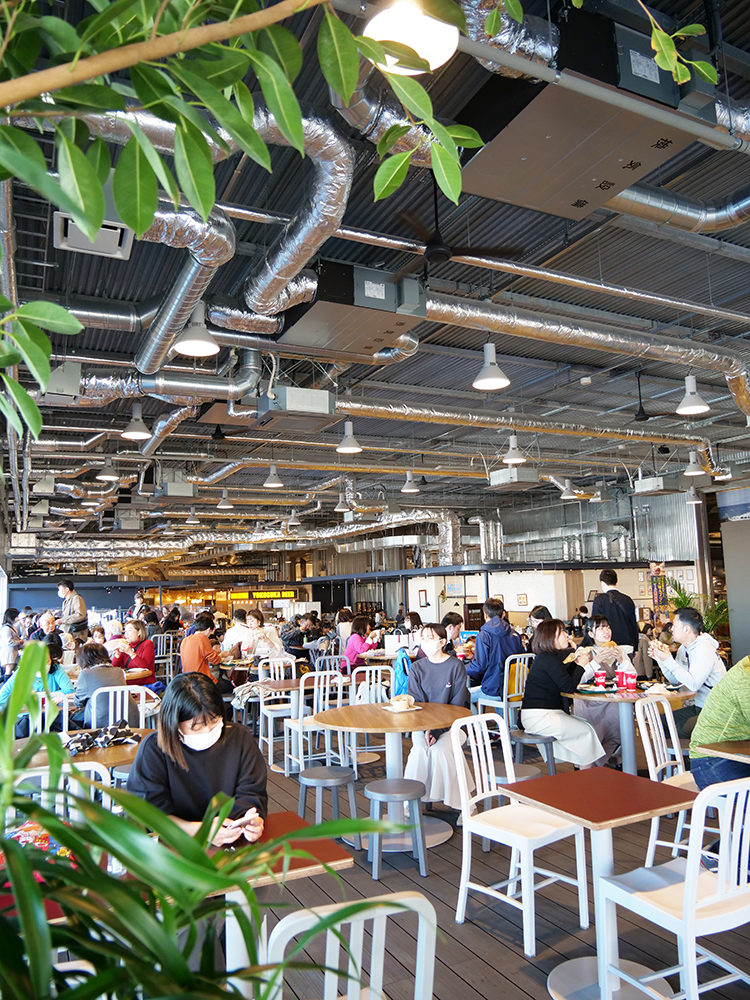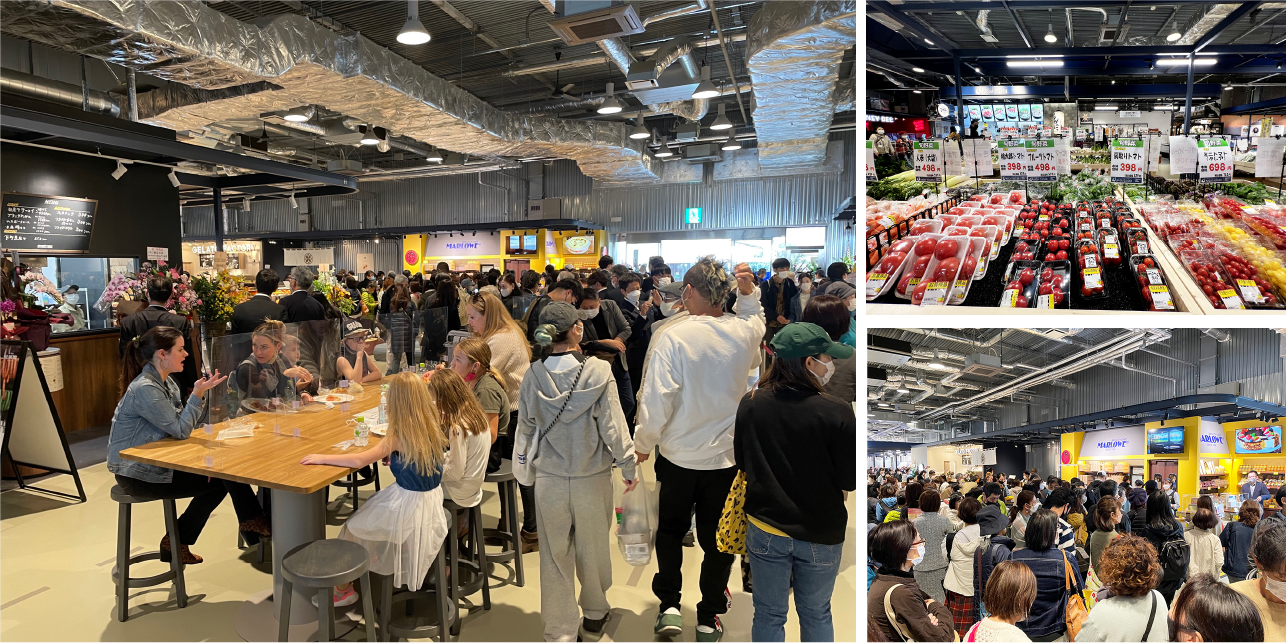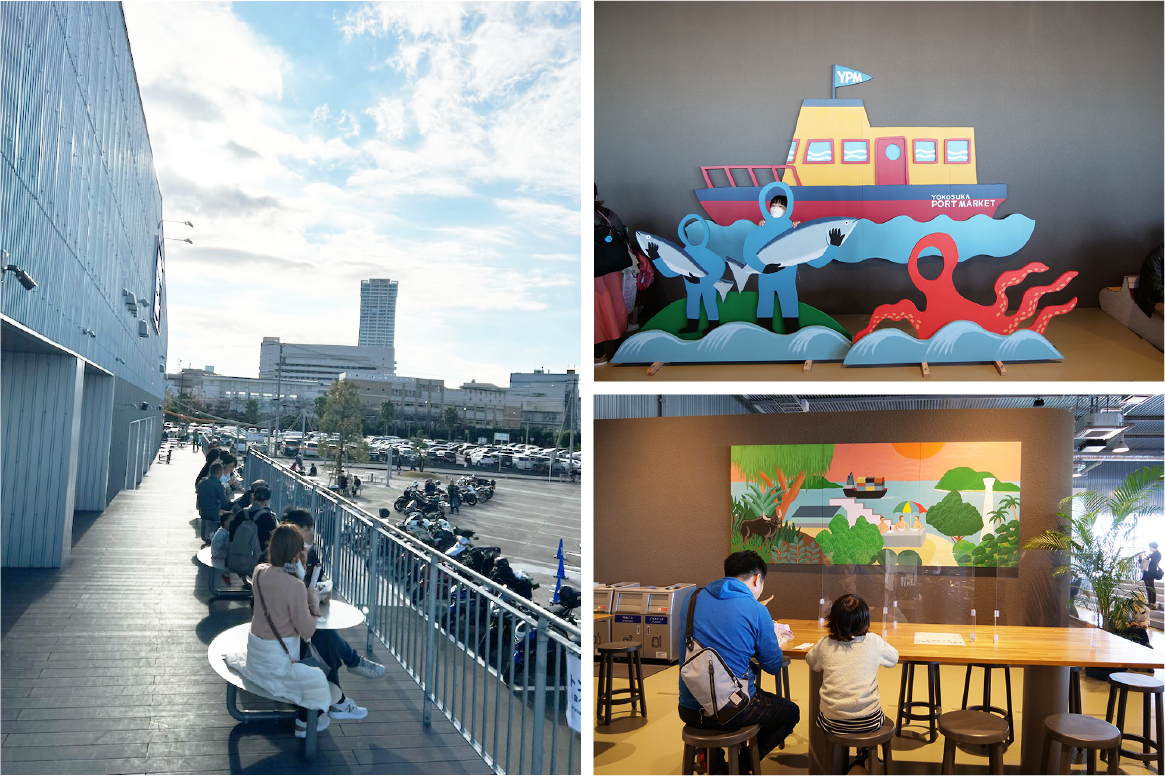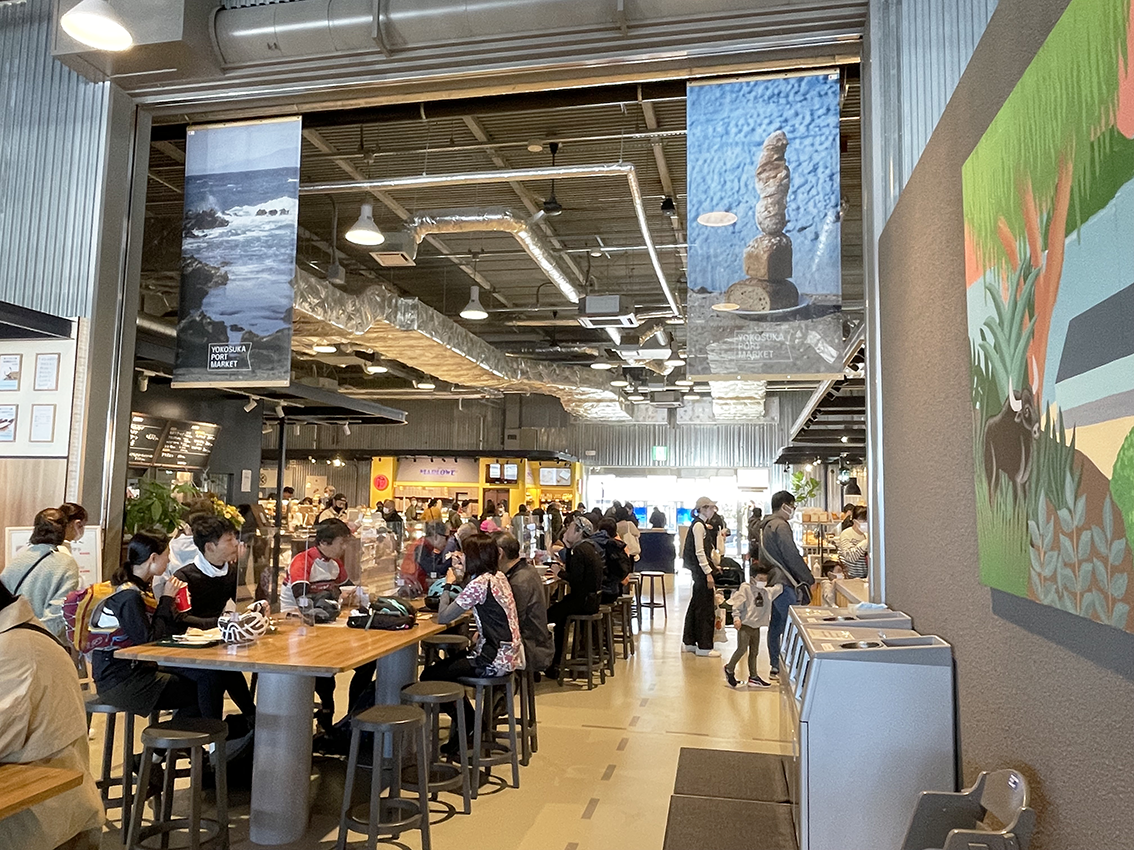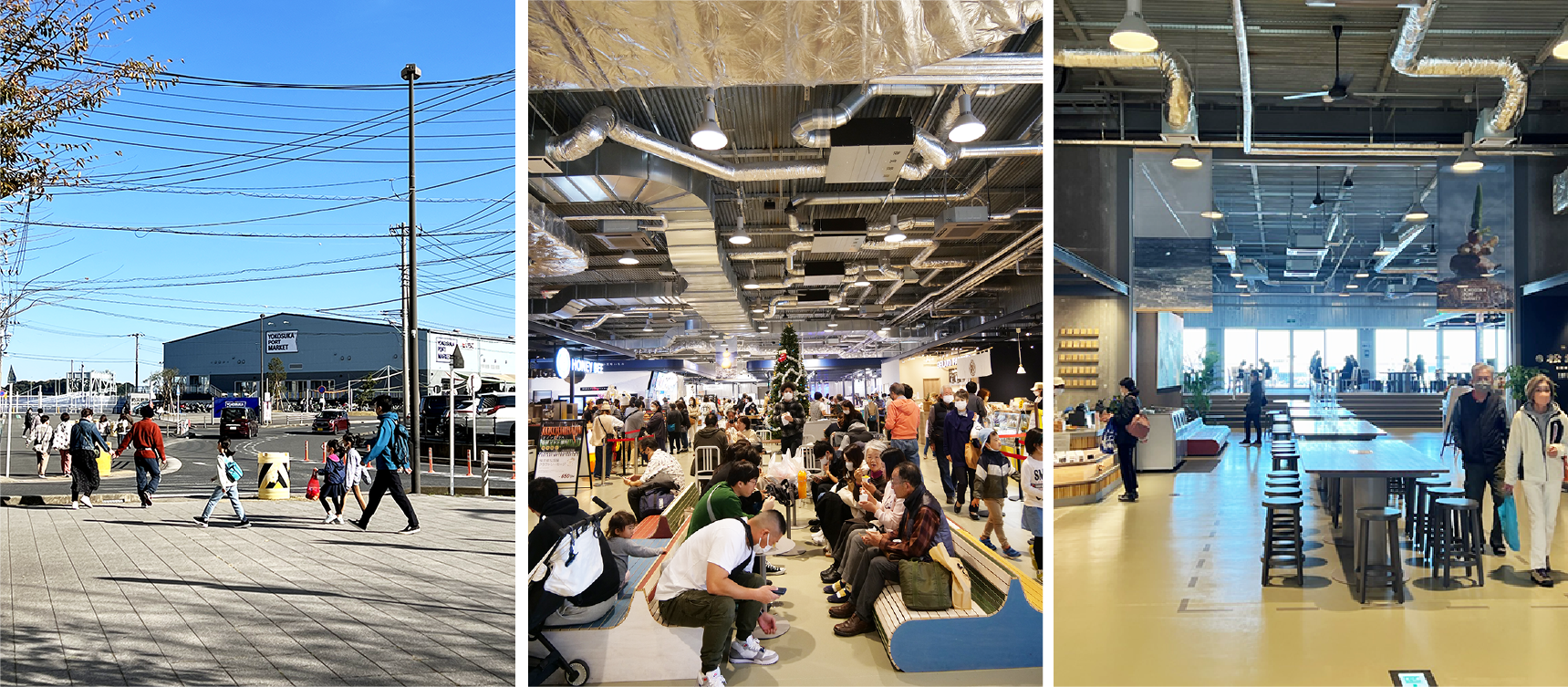
 Story
Story
A New Vision Unlocking a City’s Possibilities
Ichigo Yokosuka Port Market - Part 1 -
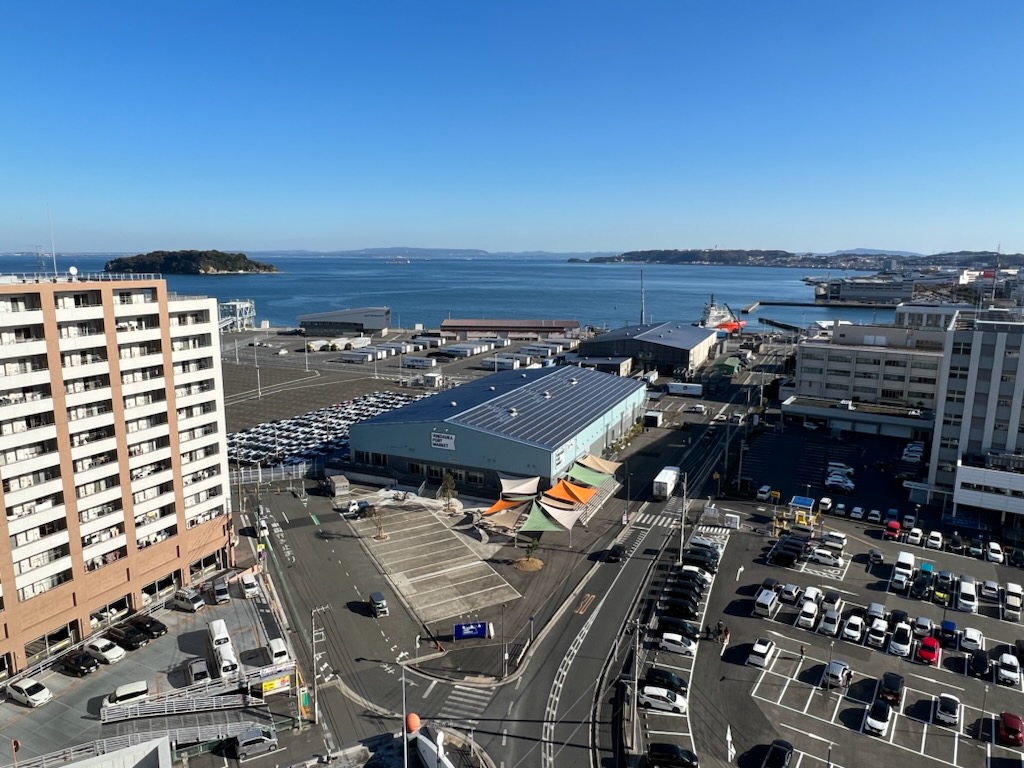
Yokosuka is known as the city where Commodore Matthew C. Perry's U.S. Navy fleet arrived at Uraga in 1853, paving the way for Japan to open its ports to the world.
Surrounded on three sides by the sea and rugged terrain, Yokosuka boasts unique natural resources and regional attractions, including Sarushima, the only natural island in Tokyo Bay, historical and cultural assets tracing the history of the Miura clan and the diplomatic and trade opening of Japan, and a multicultural environment with its many foreign residents.
In fall 2022, a new retail facility opened along the coast of Yokosuka - the Ichigo Yokosuka Port Market.
The facility was originally built as a refrigeration warehouse, which was subsequently converted into a farmers’ market. Following the closure of the farmers’ market, Yokosuka City selected Ichigo to renovate and operate the market as a Public-Private Partnership (PPP).
“We want to make the 10,000-meter long seaside promenade, Umikaze no Michi, like Kalakaua Avenue in Hawaii, and the Ichigo Yokosuka Port Market like the Ala Moana Shopping Center. We have finally taken the first step in realizing this dream,” said Mayor Katsuaki Kamiji at the opening ceremony.
The opening ceremony was a city-wide celebration attended by the mayor of Yokosuka City and local government officials, a sign of the local community’s high hopes for the market.
The newly transformed market offers visitors the opportunity to experience Miura Peninsula’s rich food culture and aims to be a tourist attraction rooted in the local community.
Hideki Takeuchi, a representative director of City Support Yokosuka (CSY), a wholly-owned entity of Yokosuka City, explains that the former market used to consist mainly of fishing businesses. Mr. Takeuchi managed the former market as a committee member of CSY, the owner and operator at the time.
Originally built as a seafood refrigeration warehouse in 1987, the former market opened in 2013 after undergoing renovations as part of Yokosuka City’s initiatives to promote local production and consumption, and served as the eastern seafood counterpart to Sukanagosso, a large farmers’ market in western Yokosuka. Although the number of annual visitors were initially over 500,000, the number gradually decreased to about 320,000 in 2018.
“We knew we had to do something to turn things around, but nothing was changing, so we decided to close the farmers’ market in 2018. One mistake was that we couldn’t clearly identify who our target customers were, the local community or tourists.”
Although the former market sold vegetables in addition to seafood products, the market tenants would get caught in a price war with the nearby supermarkets that opened and were subsequently unable to showcase their unique advantages.
CSY decided to withdraw from market operations, and handed over operations to its tenants for one year while it developed a restructuring plan.
When CSY conducted a market sounding*, operators of casual restaurants and supermarkets visited the site, but none of them led to a successful lease-up given the shape and size of the site, competitive environment of the surrounding area, and the prerequisite of creating a tourist center through a partnership with Yokosuka City.
*Market sounding: A survey conducted by the government in assessing how to use owned land. The government fields opinions and suggestions from the private sector, and through such discussions, determines the feasibility of a project and whether it is marketable, and establishes the conditions that would make it easier for businesses to participate.
It was then that CSY approached Ichigo, and the discussions began.
“Ichigo has a proven track record in real estate renovation as well as experience in supporting agriculture and engaging in tourism businesses. We saw a good opportunity to utilize our expertise and decided to work with CSY,” Minoru Ishihara, Ichigo Executive Vice President & COO, says of the facility restructuring.
“We offer visitors various experiences centered around food, showcasing the agricultural, fish, and livestock industries, cooking, services, dining environments, marchés, and food education, and even focusing on environmental issues and contributing to society. These experiences also include the farm to table process as well as food presentation. We believe it is important to show gratitude for animals and food naturally and want to show respect to primary industry workers by helping them increase their income. With this in mind, we came up with the renewal concept of ‘food experience’.”
In 2019, an Ichigo-led consortium was selected in an open public bid by CSY soliciting proposals from companies to renovate and operate the facility as a public-private partnership (PPP).
Public-Private Partnership (“PPP”): A partnership between a government agency and a private sector company used to build, maintain, and manage public facilities. The partnership aims to leverage the creativity of the private sector company, make effective use of funds, and streamline administrative work.
Ichigo, in cooperation with its many partners, began its leasing activities for tenants under the Covid environment. A total of 16 stores joined as tenants offering “food experiences,” including a food specialty shop that sells fish, meat, and vegetables, an established restaurant serving Yokosuka Navy hamburgers, a local microbrewery, a famous pudding store in the Yokosuka/Hayama area, a bakery, a sandwich store, and a souvenir shop.
“The facility became an attractive space worth visiting thanks to the clear ‘food experience’ concept, a cohesive environment, and attractive tenants. Also, local fishery associations and farmers decided to set up shop. This really impressed me.” (Takeuchi)
The renovated market has gotten off to a good start towards its target of 1 million visitors per year.
“We wanted to convey the inherent power of the space through the interior design and create an energetic community where diverse people come together,” said Tsukasa Horiuchi of Flowstone Creative Industries, in charge of all design aspects of the market renovation project, including the renovation plans and customer touch points. Having worked on a number of Ichigo projects in the past, he says the Ichigo Yokosuka Port Market project had alignment with a theme he has been working on recently.
In recent years, we have been working on the theme of reassessing the primary industries that are firmly rooted in people’s lives. A rural lifestyle that maximizes the potential of raw materials, such as the rice, sake, miso, vegetables, and bowls made with water and soil. Based on this fundamental philosophy, we wanted to create a lifestyle that focuses on not only the present, but also the future, and decided to acquire and renovate an old farmhouse in a rural area in Ishikawa Prefecture.
This farmhouse, called “Takigahara Farm,” has attracted recent college graduates from not only Japan, but also Europe, who now live in the house and farm with the local people.
“I believe that such a project will pave the way for the next generation’s way of life and creating small but meaningful businesses. We had worked with Ichigo in the past, and when we heard about the Yokosuka project, we thought we could leverage our experience from this project.”
With agriculture at the core, people of different generations, nationalities, and lifestyles come together in one place, building a community while feeling the gifts of nature and appeal of the local area. The starting point of this project was the acceptance and blending of different people and values.
“Although located in the same Miura Peninsula, Yokosuka has a distinct culture unlike other areas such as Miura, Zushi, and Hayama. Yokosuka has both an American feel and deep local culture, with people coming and going.
We thought this mix of cultures was unique, and felt the potential to create a community.
In addition, by incorporating elements from farmers’ markets we observed when we travelled overseas and the United Nations University Farmers’ Market that we operate in Aoyama, we thought we could create a vibrant space with the food experience concept at its core.
Making the most of the high ceilings in the 900-tsubo (2,975 ㎡) former seafood refrigeration warehouse, we transformed the space into a retail facility full of vibrancy and where different elements mix. As we all worked on store design, architecture, and operations while imagining this end result, we felt that everyone working on this project started to come together as one,” Horinouchi recalled.
Visitors to the Ichigo Yokosuka Port Market are people of all ages and genders. They browse the store displays, buy groceries, and enjoy food while sitting on the benches in the dining area or the outdoor terrace in order to enjoy an ocean view.
In one area with a ship-shaped cutout board and a bench, visitors take pictures of their children to remember their visit.
Inspired by Yokosuka’s history and coastal atmosphere, the market has jazz music playing in the background, inspired by Brazilian music and slow R&B.
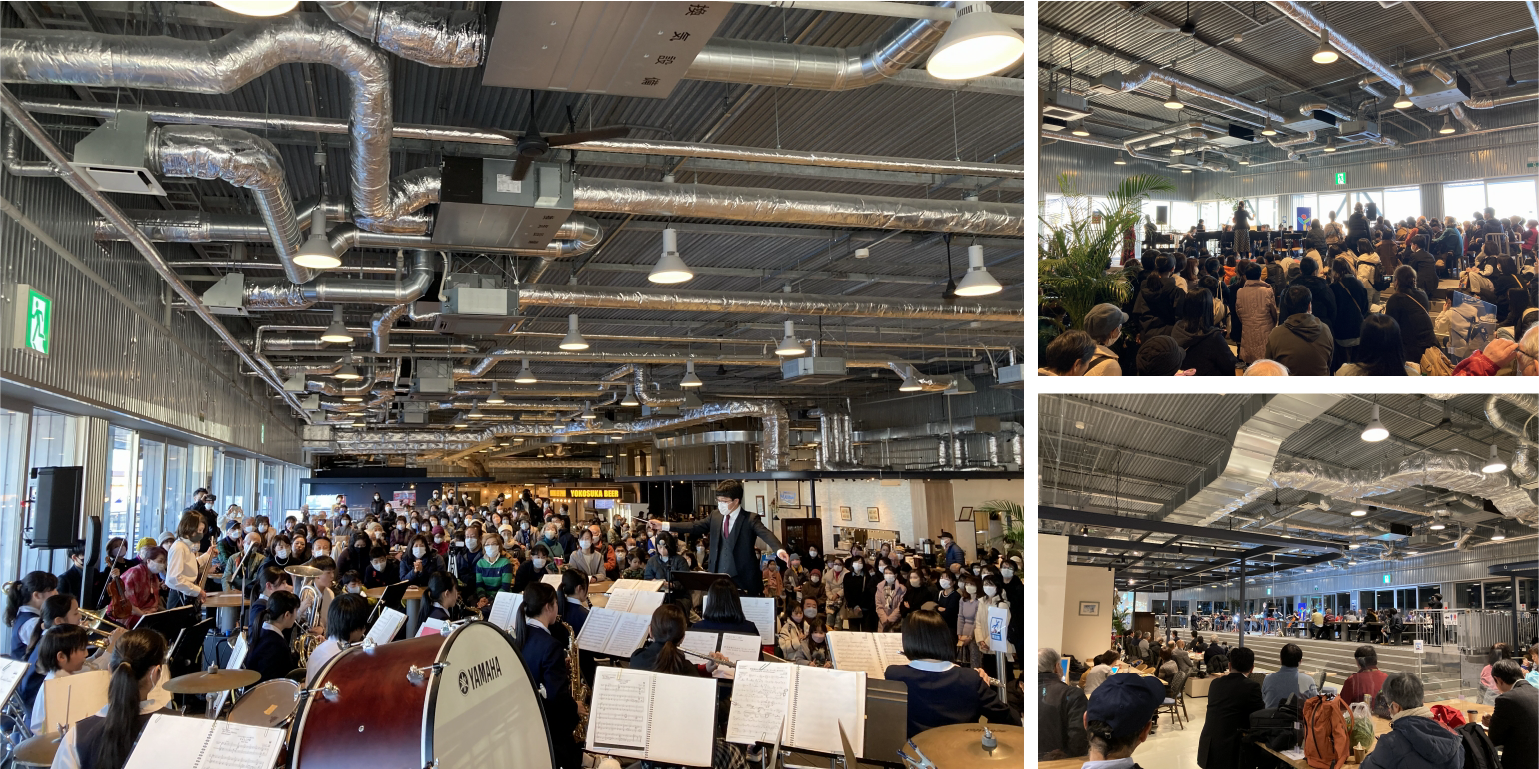
In Yokosuka, where the mayor strongly supports musical activities, CSY focuses on organizing concerts and collaborating with local musicians in order to cultivate a foundation with deep local roots.
In addition, as part of its support for sports activities, CSY has hosted the BMX world championships, and offered training fields in Kurihama and Oppama for a J.League club team and a professional baseball team, respectively. It is rare in Japan for one city to have training bases for both professional soccer and baseball teams.
As projects to revitalize the Yokosuka area via culture, food, music and sports make progress, those involved in these projects are turning their attention to new challenges.
“We want to create a new lifestyle through agriculture and grow the community of people who share this vision. By connecting the entire production and distribution processes and sharing ideas, we are proposing a new way of living.
We are creating a community by bringing together the connections made with people.
Ichigo Yokosuka Port Market is the starting point and origin for this mission. This is not the end of our efforts; we will continue to revitalize Yokosuka from this perspective.” (Horinouchi)
“More than 90% of visitors to Yokosuka are day-trippers, including to nearby Kamakura. To achieve greater economic benefits, we need to capture tourism demand including trips with overnight stays. The areas around the Miura Peninsula, including Kamakura and Yokosuka, have many tourist attractions. Yokosuka can become a popular multicultural inbound destination through growing the night market, given that some retailers accept USD as payment. I think Yokosuka City can achieve its goal of increasing tourists, and we want to contribute to that goal.” (Ishihara)
“We want to popularize visits to nearby Mikasa Park and Sarushima, followed by eating at the Ichigo Yokosuka Port Market. There are also other facilities with value-add potential located near the ocean. We want the area more attractive for visitors to enjoy a whole day here.” (Takeuchi)

